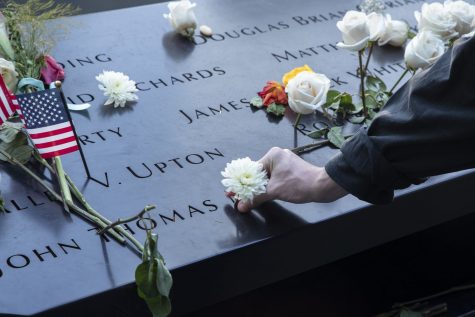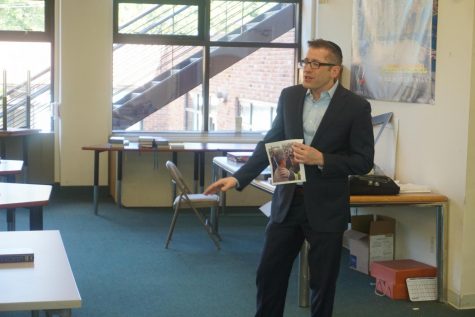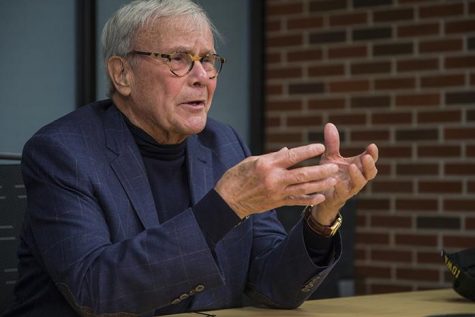After 20 years, the UI and Daily Iowan remember 9/11
Twenty years ago, the World Trade Center towers fell. Now, faculty, alumni, and former Daily Iowan reporters remember the immediate aftermath when the U.S. was attacked.
September 12, 2021
“A day of infamy.”
That was the headline of The Daily Iowan’s paper on Sept. 12, 2001, one day after al-Qaida members carried out suicide attacks aboard three hijacked planes that flew into the World Trade Center in New York City and the Pentagon in Washington D.C. A fourth plane crashed into a field in rural Pennsylvania, after its passengers overtook the terrorists who had hijacked it.
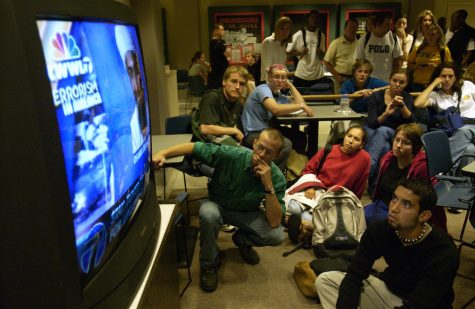
Students watch the news on Tuesday, Sept. 11, 2001.
Twenty years later, America is still reflecting on and recovering from a day that killed nearly 3,000 people and plunged the nation into despair, confusion, and darkness.
Over the years, the DI has discussed that day with with professors, students, and the community, recounting memories of the events and experiences felt by those in New York at the time and those feeling the impacts at home.
Today, even the senior class working at the DI have no memory of the twin towers crumbling to the ground before the nation’s eyes. But in 2001, the DI sent a team of college reporters to New York City to report on the tragedy — an effort that required them to drive overnight on the weekend after tragedy struck.
The team left a university campus also reeling from the attack in New York, where stunned students crowded around television screens in the Iowa Memorial Union and gathered on the Pentacrest by the hundreds for a candlelight vigil.
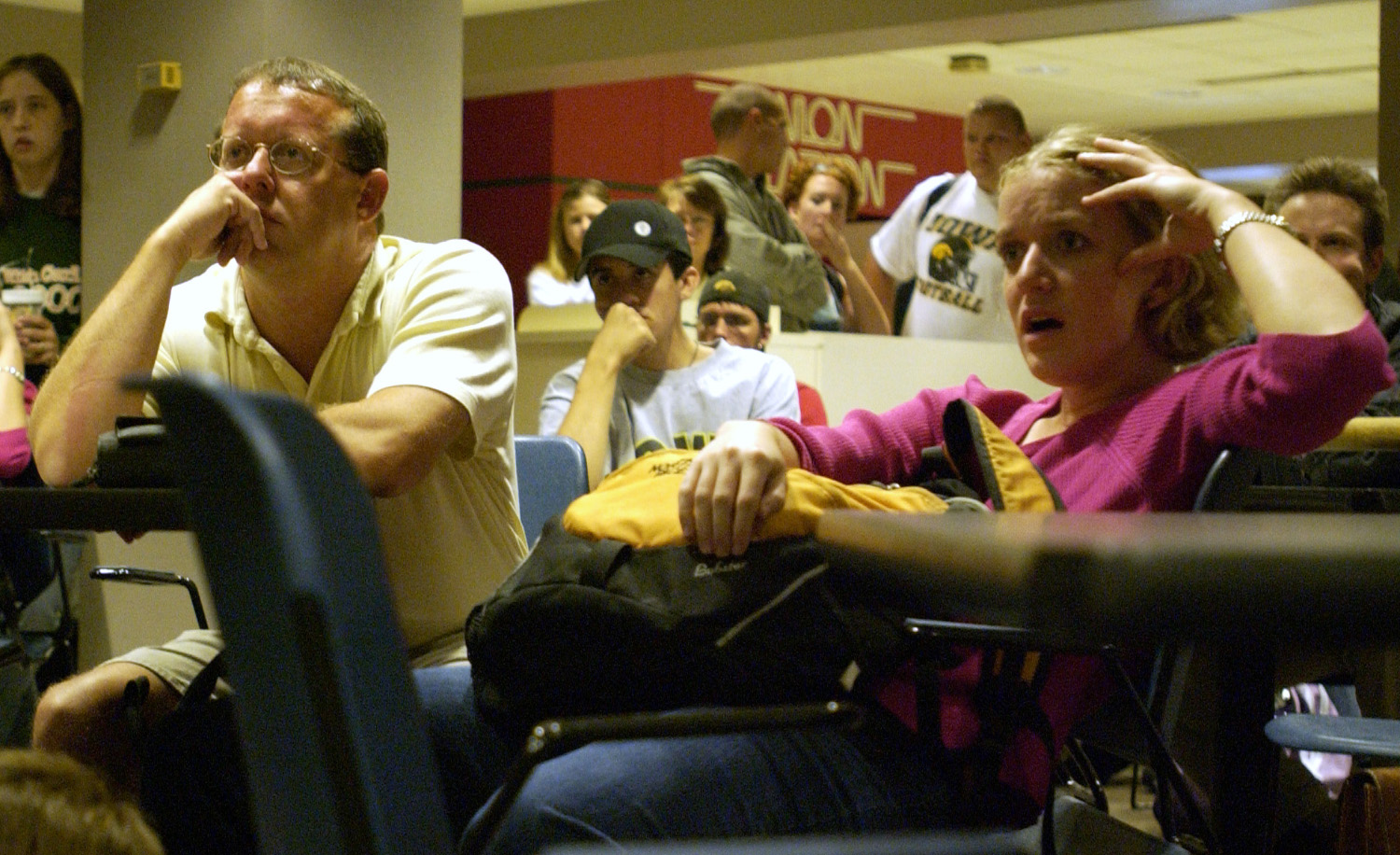
Students gathered in the IMU watch news footage of the Sept. 11, 2001 attacks.
Making a plan
Most people who remember 9/11 remember exactly where they were when they heard the news. When journalists heard the news, wherever they were, many found themselves in the newsroom immediately afterward to report on it.
Then-DI Editor-in-Chief and current New York Times Business Editor Joe Plambeck was sitting in his apartment when then-DI Publisher Bill Casey called him and told him to turn on the news. The first tower had been hit.
“I saw the second tower get hit, and it was this clear realization that something very, very big was happening,” Plambeck said.
Within a couple of hours, he and other editors at the newspaper were gathered to determine how they wanted to cover the events of the day, Plambeck said.
“‘This is not going to be a day-long story: It’s going to be a long story, so be prepared,’” he remembers the conversation going. “In some ways, it was rallying the troops.”
He said it did not matter what beat a reporter had — everyone was expected to contribute to the coverage, whether on campus or in New York. Even the sports section was filled with 9/11 coverage, as most upcoming games were canceled or postponed because of the tragedy.
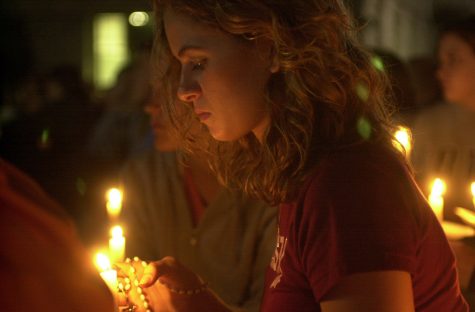
UI freshman Elizabeth Feldman sits on the Pentecrest during the candlelight vigil Tuesday evening. UI president Mary Sue Coleman and student body president Nick Klenske were among the speakers in attendance.
Plambeck added that he only wanted to send a few people to New York — those that he knew were experienced and could get the job done.
Lisa Rossi (then Lisa Livermore), former DI reporter and current comedian, was a 20-year-old student at the UI and the DI’s City Editor on 9/11. She said when she heard the news, her first reaction wasn’t to jump into action — it was to turn the radio off and hide.
“No no no no no no no,” she remembered herself saying, shaking her head.
She said she had a strong feeling when she arrived at the Iowa Memorial Union, where she went to bury herself in her history textbook to study and block out the day — she knew it was going to be rough when she entered the newsroom later that day.
“I went to the deepest darkest depths of [the IMU] and I just tuned it out for a while, because I just knew that it was going to be — it was like my last moment of peace for myself,” Rossi said.
Eventually, she entered the DI newsroom. She was the last one there, and she said despite the chaos of the attack, the atmosphere was somber, quiet, and uncomfortable.
“That’s when [Plambeck] asked me, ‘Would you be willing to go to New York?’” she recalled. “I really wanted to say no, but I said yes because my philosophy at that time was to say yes to any story — any opportunity.”
Plambeck said he wanted someone with Rossi’s skills to be there. While photographer Conrad Schmidt and reporter Peter Boylan were eager to cover the attack on the ground, Plambeck said Rossi was a bit more hesitant.
Rossi said her initial reaction came came from a place of fear surrounding the situation.
“I think it was just scary. News is a lot like that, you know? When a new thing happens, sometimes it’s just scary,” she said. “Like, sometimes I had that feeling, even before that, like, ‘I don’t want to go to that fire. I don’t want to see what I’m going to see, but that’s the job.’”
Some of Rossi’s memories are hazy, especially when she was traveling to New York. However, she does remember having to wash her hair in a gas station sink before entering New York.
Map by Molly Milder/The Daily Iowan
Upon arrival, Rossi said the team put on their DI T-shirts and hoped that if Iowans were there, they would reach out to them. She said they ran into the New York University president and interviewed him.
“He was very traumatized. There were things he could not talk about,” she said. “It triggered a lot of traumatic memories, I think from war, for him.”
Flipping through the reporter’s notebook she’d kept with her in New York, Rossi found a note she had written to herself pointing to something strange at the end of the article after her story was published.
“He was like, ‘we weren’t ready for this, we weren’t ready for this,’” she said. “And he was like ‘You know, you’re in Iowa. It’ll get ya.’”
She says he was right.
“I think we in Iowa felt that perhaps maybe this wouldn’t affect us.”
She read more excerpts from her journal — personal notes about her experiences interviewing sources.
“‘I clenched my teeth writing this portion of the narrative. Large buses crammed with volunteers seemed to miraculously materialize from Ground Zero,’” Rossi wrote. “‘I stared at them all with bulging eyes and hands dirtied by death. They angrily stared back … most rejected my pathetic attempts to interview, they dodged my attempts to characterize them as heroes.’”
Twenty years after the attack, it is still difficult for Rossi to talk about during interviews. She said she gets new memories every year, and some of them are rough. This year, however, she was given the gift of a “really beautiful memory.”
“I didn’t do well with 9/11 there. There got to be a point where I got kind of traumatized. And I was drinking, I threw up, I cried and stopped talking,” she said, close to tears. “At some point, me and the team stopped into a comedy club, and the comedian was like, ‘I know this just happened and it's not funny, but I want to keep looking for the light.’”
She said she felt “like garbage” and the comedian was healing for her. It is hard for her to complete interviews on the subject because she feels like she doesn't have a right to be talking about her trauma.
“That’s where I feel like the conflict about that, because for me, it was a pivotal moment in my life as a young adult. So, there’s just a lot of personal drama going on with me,” she said. “But you know, like starting my career, starting my life after this big thing, but there’s still people, I mean, it ruined their lives and they’re still looking for answers. And that’s where I feel so conflicted. I’m like, ‘Who am I to be talking about this?’ But I was a witness to it.”
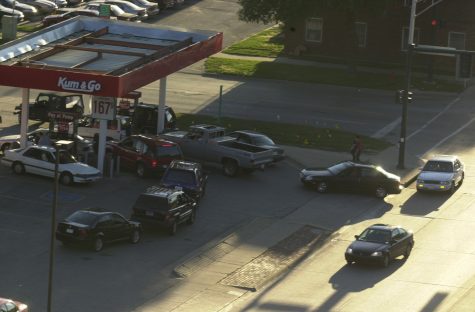
Rossi said witnessing the aftermath of 9/11 left her without a sense of purpose and caused her to view journalism cynically for a while. She left the DI for two weeks upon her return to Iowa.
"I was just like, 'I've just seen so much, and how does it help? How am I helping?'" she said. "We get into journalism to make a difference and it didn't feel like I was."
She said she has a clip of the article she wrote in her journal — one that she despised.
“I just have such a negative view of it. For me, I didn’t feel that good, although when I read it now, you know, it’s not rocket science: You write down what people say to you — you write down what you saw,” Rossi said. “...I definitely went there being like, ‘Yay, I get to witness history, what a privilege, what a special thing that I would get to do.’ But I didn’t come back feeling like that. I honestly wish I would have not seen that.”
Rossi knew she needed therapy after 9/11 but did not start it up until she was around 37-years-old. Now, she lives her life doing things she wants to do: meditating, exercising, and journaling every day, and prioritizing mental health.
“It's a work in progress, and you know, that’s the thing I’m like, ‘God if I could have just — when I think about some other people getting the help right away — would be so wonderful.’ But it's definitely a big focus in my life, you know, to take care of that,” she said.
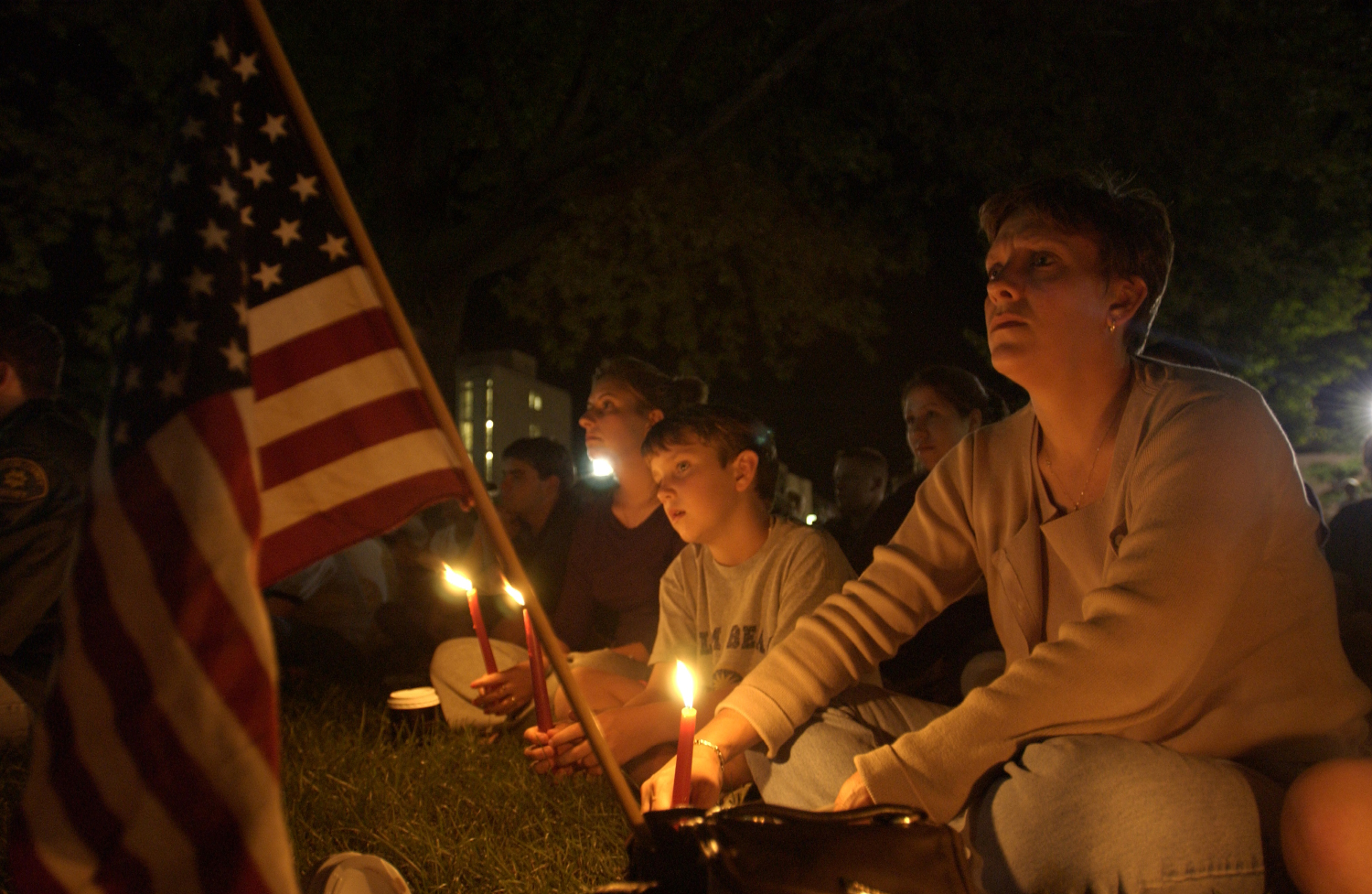
Iowa City resident Kitty Lake and her children listen at the candle light vigil on Sept. 11, 2001 on the Pentacrest.
A campus in mourning, but not at standstill
The sky was clear in New York City on Sept. 11, 2001. At 8:46 a.m. Eastern time, the World Trade Center Towers, commonly known as the twin towers, collapsed.
In Iowa City, the air was cool and the sky was clear — and the gravity of the event was certainly felt.
UI Professor of Religious Studies Raymond Mentzer — then brand new to the role — was at home, preparing for his class and listening to Iowa Public Radio when the announcer said, “There’s a report of an airplane crashing into the World Trade Center.”
“Now, I imagined a little private plane. I mean, who would have thought [it was] a large passenger plane?” Mentzer said. “Then a little bit later, she said, ‘Well no, this is really serious.’”
He said both he and his wife had lived through President John F. Kennedy’s assassination, and that most Americans who were alive that day remember where they were at that exact moment.
“This is very much the same,” he said.
Mentzer said the reaction to news of the attack in his class was delayed, partly because of the lack of social media. In his Medieval and Religious Culture class, he recalled that the majority of the students were Christian and a few were Jewish. Two were Muslim.
He said a student of his made an “uncharitable remark” about the attack, which prompted Mentzer to ask his students to reserve judgement.
“We didn’t know what happened exactly. There was this sense that somehow these were Islamic terrorists, but no one knew for sure,” he said. “At one point I felt I needed to say, ‘Look, no matter who did this, keep in mind that we’ve had homegrown terrorists.’”
But on that day, even as students stood shocked in front of screens, the UI did not cancel any classes or events, although university officials considered it. According to the Sept. 12 edition of the DI, some classes still reflected on and discussed the 9/11 attacks, and some were released early.
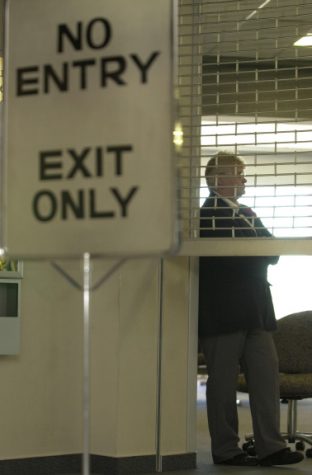
Then-UI President Mary Sue Coleman said the best way to respond was to “continue our work and studies…and not be paralyzed by the horrific events that have occurred.”
Coleman held a two-hour fireside chat, where tears ran down the faces of attendants. She had told students it was imperative to continue moving forward while also discussing the tragedy.
“It is very important for us to carry on,” Coleman had said. “I think terrorists win if we just stop. We shouldn’t be paralyzed.”
Plambeck remembered that, when Coleman made these statements, most of the campus agreed with her.
“It was something that happened to the United States, but it was also something that didn’t happen next door, in a way that, you know, talk to people in New York about today, and it really changed their life,” Plambeck said. “It didn’t have that sort of impact in Iowa City. It was a little more abstract.”
At the end of the semester, Mentzer said a student of his responded in an evaluation that he was the only professor she had who had mentioned the attack on the twin towers on Sept. 11.
“People, both faculty and students, were sort of feeling their way through this, trying to make sense of it before discussing it,” he said.
One student during the fireside chat had suggested the U.S. bomb Middle Eastern countries immediately, while another said the country shouldn’t.
He added that he refrained from bringing the incident up during his classes because of its sensitive nature. He didn’t want to create a situation that could potentially make the Muslim students feel ill at ease.
Muslim students in 2001 were fearful of prejudice, according to an article from the DI. One student, then-UI sophomore Abe Assad, said it was “typical” to blame a Middle Eastern country because of its prior history of terrorism.
Assad, who is half-Palestinian, said at the time that he was not fearful for himself, but he could foresee prejudice against others.
Some students at the UI said they were saddened that ethnicity and religion became focal points of the U.S.’s investigation into the attack.
With his background in religious studies, Mentzer understood how to “walk on eggshells,” so he said he deferred to his colleagues who specialized in Islamic studies at the UI to field questions during a department panel held on the attack.
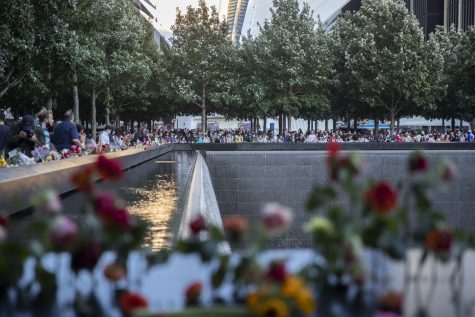
Mentzer said the 20th anniversary of the attacks caught him by surprise, and that the events taught Americans to be more inclusive, from his perspective as a religion instructor.
“I think we have made an effort… to see the broader brushstrokes here, to be a little more inclusive, to be a little more tolerant,” Mentzer said. “Intolerance, whoever is displaying it — it doesn’t matter who is displaying it or what your faith might be, or no faith whatsoever — it doesn’t really help… It’s probably a cliche to say it’s become a smaller word, but certainly we have more interactions than might have otherwise been the case.”
With the U.S. recently withdrawing all troops from Afghanistan, Plambeck remembers that 20 years ago, everyone was in a state of shock as the U.S. was not involved in any wars at the time.
“We didn’t realize how some people around the world were angry at the U.S., and so there was an innocence, truly, that was lost in that moment,” he said. “…We all had to rethink what was happening in the world, and sort of what we thought about that, and all of those things in a way we hadn’t before.”
Looking back, Plambeck said the reporting done by journalists in New York and on the UI campus was remarkable.
“The amount of stories that were done, the amount of copy that came in, the number of good stuff people collected,” he said. “I mean, it was one of the most amazing things I’ve seen in journalism.”
Timeline by Molly Milder/The Daily Iowan

